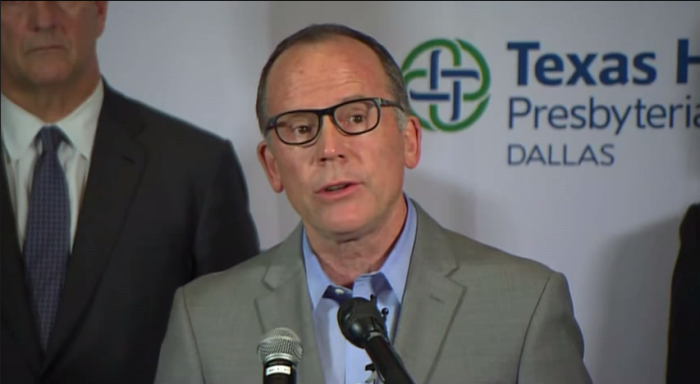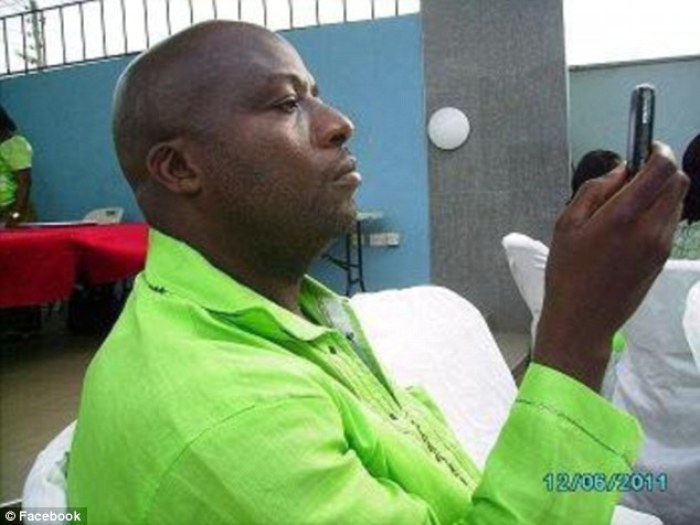Dr. Daniel Varga, Official at Faith-Based Texas Hospital, Apologizes for Mistakes in Diagnosing Thomas Eric Duncan

Dr. Daniel Varga, chief clinical officer for Texas Health Resources, the umbrella medical group for Texas Health Presbyterian Hospital where now deceased Ebola patient Thomas Eric Duncan died and two nurses were infected with the deadly virus after treating him, apologized Thursday for what he said were mistakes in his initial diagnosis.
"It's hard for me to put into words how we felt when our patient Thomas Eric Duncan lost his struggle with Ebola on October 8. It was devastating to the nurses, doctors, and team who tried so hard to save his life. We keep his family in our thoughts and prayers," noted Varga in remarks at a congressional hearing Thursday.
"Unfortunately, in our initial treatment of Mr. Duncan, despite our best intentions and a highly skilled medical team, we made mistakes. We did not correctly diagnose his symptoms as those of Ebola. We are deeply sorry," he said.
Varga explained that as one of the largest faith-based, nonprofit healthcare systems in the U.S., Texas Health Resources aims to "improve the health of the people in the communities we serve, and we care for all patients regardless of their ability to pay."
"We serve diverse communities, and as such, we provide one standard of care for all, regardless of race or country of origin," he said.

Varga's remarks comes just a week after Thomas Eric Duncan's family publicly criticized his treatment at the hospital charging that the workers at Texas Health Presbyterian could have saved his life had he been treated as an Ebola patient when he initially reported to the hospital.
"Eric Duncan was treated unfairly. Eric walked into the hospital, the other patients were carried in after an 18 hour flight. It is suspicious to us that all the white patients survived and this one black patient passed away. It took eight days to get him medicine. He didn't begin treatment in Africa, he began treatment here, but he wasn't given a chance," Duncan's nephew, Josephus Weeks, told CNN.
"Had [Duncan] been another name, you know, or another color, he would probably be living today and he would have survived it," Weeks argued. "And that's what's really hurting me the most is because they treated him the way they did because of the color of his skin, and that's very upsetting and disturbing, and know that you stand a chance if you're white, but you don't if you're black."
Varga, in his prepared remarks for the hearing, explained that Duncan presented himself at Texas Presbyterian Hospital's emergency department at 10:30 p.m. on Sept. 25.
He had a fever of 100.1°F, abdominal pain, dizziness, nausea, and headache. These symptoms, he explained, are associated with many other illnesses. Duncan underwent a number of tests for four hours. During this time, his temperature jumped to 103°F, then dropped to 101.2.
For reasons unclear from his statement, Varga said Duncan was "discharged early on the morning of September 26."
It wasn't until Sept. 28, when Duncan was transported back to the hospital by ambulance that he was diagnosed with Ebola, and the Centers for Disease Control and Prevention was notified.
"The hospital followed all CDC and Texas Department of State Health Services recommendations in an effort to ensure the safety of all patients, hospital staff, volunteers, nurses, physicians and visitors. Protective equipment included water impermeable gowns, surgical masks, eye protection and gloves," explained Varga.
"Since the patient was having diarrhea, shoe covers were added shortly thereafter," he noted.
"The physicians, nurses and other caregivers at Texas Health Dallas worked diligently to provide compassionate, intensive care to Mr. Duncan. He was treated with the most appropriate and available medical interventions, including the investigative antiviral drug Brincidofovir. Mr. Duncan was the first Ebola patient to receive this drug. Mr. Duncan did not receive a serum transfusion because his blood type was not compatible with the serum donor," Varga added.



























